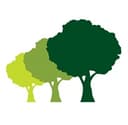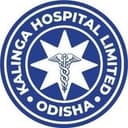Bachelor of Ayurvedic Medicine and Surgery (BAMS)
OR
Prepared by Docthub Courses Team ∣
Last updated on 18 Jul 2024
Overview
Bachelor of Ayurvedic Medicine and Surgery (BAMS) is a five-and-a-half-year undergraduate degree program that combines traditional Ayurveda with modern medical practices. Students who have completed their higher secondary education in the science stream can apply for this course.
The curriculum includes a broad range of subjects such as Ayurvedic medicines, medical practices, and more. The program also includes a one-year mandatory internship to provide practical training.
BAMS is only offered in offline mode, meaning students have to attend classes in person. This program provides complete knowledge of “Ashtanga Ayurveda” along with scientific advancements in modern medicine. Upon graduation, students gain expertise in the field of Ayurveda and Ayurvedic medicine. The Central Council of Indian Medicine (CCIM) is responsible for admission to Ayurveda education at the undergraduate and postgraduate levels, as well as the practice of Ayurvedic medicine in India.

Table of Content
What is BAMS?
In India, Ayurveda has gained prominence as an alternative method for the treatment of diseases. Ayurvedic medicines are less costly compared to Western medicine, and many diseases can be cured through Ayurvedic treatments. BAMS course focuses on the Ayurvedic treatment of diseases and incorporates the use of natural elements found in herbs. Ayurveda traces its roots to Vedic times and has been used as a method of healing for centuries.
BAMS or Bachelor of Ayurvedic Medicine and Surgery is an undergraduate degree of five and a half years that integrates traditional Ayurveda and modern medical practices. It includes a one-year mandatory internship to provide practical training, and upon graduation, candidates gain expertise in Ayurveda and Ayurvedic medicine.
BAMS Course Highlights
| Course Name | Bachelor of Ayurvedic Medicine and Surgery |
| Commonly known as | BAMS course |
| Course Level | Undergraduate |
| Course type | Degree program |
| Course duration | 5.5 years (including 12 months mandatory internship) |
| Minimum qualification | 10+2 Science with PCB (Physics, Chemistry, Biology) |
BAMS Eligibility Criteria
To be eligible for admission to the BDS course, students must meet certain criteria. These include:
- Passing 10+2 or equivalent examination with Science subjects (Physics, Chemistry, and Biology as main subjects)
- For general category students, a minimum aggregate of 50 percent in the Class 12 board examination is required. For SC/ST/OBC students, the qualifying percentage is 40 percent.
- Students must also have qualified for the National Eligibility cum Entrance Test (NEET) by securing a minimum qualifying cutoff percentile conducted by National Testing Agency (NTA).
- Must have completed the age of 17 years at the time of admission.
- For foreign students, the university will accept any other equivalent qualification approved by the university.
BAMS Course Duration
The BAMS course duration in India is five and a half years, including theory and practical training. Along with academic coursework, students must also complete a one-year mandatory internship to gain practical experience in the field of Ayurveda.
Who should do BAMS?
Aspiring students who wish to study the integrated field of Medical Science and Traditional Ayurveda can opt for a BAMS degree program. BAMS is particularly useful for those who are interested in alternative techniques for the treatment of diseases.
BAMS Entrance Exam
The BAMS entrance exam – NEET (National Eligibility cum Entrance Test) is an entrance exam held to get admission to the BAMS course.
To apply for the BAMS course, students need to fill out an online application form provided by the National Testing Agency (NTA) before the deadline and appear for the NEET exam, which is conducted once a year in a computer-based mode. The minimum cutoff score is required for students to be eligible for NEET counseling.
The allocation of seats is based on various factors such as the student’s rank, the choices they have filled, availability of sets, and reservation criteria.
Why pursue BAMS?
Studying BAMS offers many benefits, such as:
- Opening up job opportunities in prestigious government hospitals and private hospitals
- Providing the chance to work both in India and abroad due to the recognition of Ayurveda worldwide
- Allowing graduates to open their Ayurvedic pharmacy or clinic
- Helping in the transition to a healthy lifestyle by learning about Ayurveda’s roots and applications
- Providing a good salary, similar to that of a doctor
- Being a part of an ancient system of healing that is well-known worldwide
BAMS Admission Process
To get admission to the BAMS course, students need to follow these steps:
- Check the eligibility criteria: Candidates must have completed 10+2 education with Physics, Chemistry, and Biology as main subjects and scored at least 50% marks in aggregate.
- Clear the entrance exam: Most BAMS colleges accept NEET scores for admission. Some institutes may also conduct their entrance exam that tests the candidate’s knowledge of Physics, Chemistry, Biology, and General Knowledge.
- Pay the application fee: General category students need to pay INR 1,500, while SC/ST students need to pay INR 800 as the NEET exam fee.
- Wait for the merit list: Based on the NEET exam scores, a merit list is prepared, and candidates are selected for admission based on their rank in the list.
- Attend counseling; A centralized counseling process is conducted after the NEET exam to admit students into various medical science courses.
- Verify documents: Selected students are required to submit their original documents for verification.
- Pay the tuition fees: Finally, candidates need to pay their tuition fees and other charges to complete the admission process.
BAMS Course Syllabus
The syllabus is structured to ensure that students receive a comprehensive education in the course. Here are some of the key subjects that are covered in the BAMS course:
First-year:
- Padartha Vigyan, Ayurveda Itihasa (Philosophy and History of Ayurveda)
- Sanskrit
- Kriya Sharira (Physiology)
- Rachana Sharira (Anatomy)
- Maulik Siddhant and Ashtanga Hridaya (Basic Principles and Ashtanga Hridaya)
Second year:
- Dravyaguna Vigyan (Pharmacology)
- Rasa Shastra and Bhaishajya Kalpana (Pharmaceuticals and Drug Formulations)
- Agad Tantra, Vyavahar Ayurveda, and Vidhi Vaidyaka (Toxicology, Forensic Medicine, and Medical Jurisprudence)
- Charak Samhita and Purvardha (Charak Samhita and its Predecessors)
Third year:
- Rog Nidan and Vikriti Vigyan (Pathology)
- Swasthavritta and Yoga (Social and Preventive Medicine and Yoga)
- Ayurvedic Dietetics
- Kaya Chikitsa (General Medicine)
Fourth-year:
- Panchakarma
- Shalya Tantra
- Shalakya Tantra
- Research Methodology and Medical Ethics
Upon successfully passing the examination, all candidates are obligated to undertake a one-year compulsory rotating internship across all departments.
Top BAMS Colleges
To assist you in locating the top BAMS colleges, we have created a list of colleges along with their corresponding fee structures.
| College Name | Annual Fees (in INR) |
| Institute of Medical Sciences Banaras Hindu University | 2 L – 2.5 L |
| Shree Guru Gobind Singh Tricentenary University, Gurgaon | 19 L – 19.5 L |
| Datta Meghe Institute of Medical Sciences, Nagpur | 20 L – 21 L |
| Patanjali Ayurved College, Haridwar | 2 L – 2.5 L |
| State Ayurvedic College and Hospital, Lucknow | 2.5 L – 3 L |
| K G Mittal Ayurvedic College, Mumbai | 58 K – 59 K |
| Government Ayurved College and Hospital, Nagpur | 5 L – 5.5 L |
| JSS Ayurveda Medical College, Mysuru | 2.5 L – 3 L |
| Ashtanga Ayurved Medical College, Pune | 42 K – 43 K |
| Podar Ayurved Medical College, Mumbai | 41 K – 42 K |
BAMS Scope
Ayurveda, a traditional system of medicine, has gained popularity in recent years as people seek alternative and natural methods of healing. BAMS, a course in Ayurveda, is becoming popular not only in India but worldwide due to the limitations of allopathy and the increase in severe health issues. With Ayurveda having minimal side effects, more and more people are turning to BAMS doctors for help with lifestyle diseases and other ailments.
This demand for BAMS doctors has created a plethora of opportunities for aspirants in the field. The course covers various aspects of Ayurvedic medicine, including anatomy, physiology, and pharmacology. It also includes practical training in Panchakarma, yoga, and other Ayurvedic therapies.
BAMS graduates can work in government or private hospitals, Ayurvedic research centers, or establish their own practice.
Career Opportunities after BAMS
After completing BAMS, there are several career opportunities available for students in the field of Ayurveda.
- Ayurvedic Doctor: An Ayurvedic Doctor or Panchakarma Practitioner provides Ayurvedic treatment and remedies for various human diseases, disorders, and illnesses. It involves five procedures, and practitioners use these methods to release stress and prepare the human body tissues to accept the benefits of food, nutrition, and exercise
- Pharmacist: One can choose to become an Ayurvedic pharmacist after completing the BAMS program. An Ayurvedic pharmacist develops and prepares Ayurvedic medicines with accurate compositions.
- Teacher: BAMS graduates can opt for a career as an Ayurveda teacher by pursuing a postgraduate program and enrolling in a Ph.D. program. After that, one can become a professor in any Ayurveda college.
- Counselor: One can become an Ayurveda counselor after BAMS. As a counselor, one promotes preventive healthcare methods through traditional Ayurvedic medical science.
- Dietician: An expert in dietetics is known as a dietitian. BAMS graduates can become dieticians and assess, diagnose, and treat nutritional problems for their patients depending on their medical conditions and requirements.
BAMS Salary Prospect
The average salary of BAMS graduates typically ranges from Rs. 300,000 to Rs. 700,000 per year. The salary may vary depending on various factors such as the employers, job profiles, location, experience, and skills of the candidate.
However, the demand for BAMS doctors is increasing due to the growing popularity of Ayurvedic medicine, which could lead to better job opportunities and higher salaries in the future.
Explore colleges for this course

Explore this course by location..
by States
by Cities
Jhunjhunu
Aurangabad
Guntakal
Lucknow
Balangir
Barwala
Humnabad
Hubli
Ahmedabad
Sangli
Moradabad
Jaipur
Jabalpur
Indore
Jammu
North Goa
Bengaluru
Manipal
Nashik
Haridwar
Patna
Bhopal
Sangamner
Farrukhabad
Pune
Dehradun
Nagpur
Bareilly
Varanasi
Hyderabad
Bagalkot
Kurukshetra
Ballari
New Delhi
Rajkot
Meerut
Sonipat
Latur
Jaysingpur
Siwan
Thiruvananthapuram
Solapur
Ganjam
Guwahati
Davanagere
Vijayawada
Thrissur
Kolhapur
Rajnandgaon
Hapur
Mangalore
Bijapur
Osmanabad
Ernakulam
Bilaspur
Udaipur
Yadgir
Nipani
Yavatmal
Sankeshwar
Shillong
Muzaffarpur
Dharwad
Jamnagar
Koppa
Shimoga
Begusarai
Sullia
Mumbai
Haveri
Chomu
Gandhinagar
Amroha
Prayagraj
Nagercoil
Gurugram
Nadiad
Ranchi
Bilaspur
Durg
Gaya
Belagavi
Jalna
Navi Mumbai
Betul
Tirupati
Akola
Koppal
Belthangady
Hathras
Bidar
Gondia
Puri
Rohtak
Bijnor
Surat
Gajendragarh
Raipur
Kalol
Chalisgaon
Chitradurga
Hoshiarpur
Vijayapura
Wardha
Saharanpur
Mandsaur
Chennai
Bilaspur
Mysore
Patiala
Mathura
Chandigarh
Manvi
Jhansi
Dakshina Kannada
Thiruvallur
Uttara Kannada
Gangoh
Pilibhit
Shankarpur
Valsad
Aligarh
Rewa
Moga
Hingoli
Bhikhi
Tumakuru
Agra
Borsad
Sri Ganganagar
Harugeri
Azamgarh
Badami
Jagadhri
Dhoraji
Amravati
Ludhiana
Buldana
Coimbatore
Junagadh
Siddhpur
Raisen
Belgaum
Alappuzha
Chandrapur
Kasaragod
Kolkata
Amritsar
Jodhpur
Jind
Dankaur
Kasganj
Palghar
Shoranur
Mandi
Satara
Khurja
Vadodara
Kangra
Contai
Pandalam
Pilani
Palakkad
Chandauli
Mohali
Gadhinglaj
Firozpur
Dewas
Kannur
Roorkee
Ghaziabad
Islampur
Chhapra
Nanded
Bhatinda
Gonda
Sri Muktsar Sahib
Ratnagiri
Malappuram
Shrigonda
Athur
Bargarh
Anand
Gadag
Buxar
Tirunelveli
Fatehgarh Sahib
Jalandhar
Mirzapur
Kozhikode
Amreli
Sirsa
Kanyakumari
Motihari
Ilkal
Ujjain
Ghazipur
Fasalwadi
Nangal
Pusad
Churu
Dhule
Baghpat
Related Job Roles
BAMS Doctor
Related Job Vacancies
View All 9 Jobs

FAQS
What are the fees for the BAMS course in India?
The fees for the BAMS course in India range from 20 K to 3 LPA.
What is the minimum age to apply for BAMS?
The minimum age to apply for BAMS is 17 years.
Do I need to qualify for NEET to pursue BAMS?
Yes, you need to qualify for NEET to pursue BAMS.
What is BAMS all about?
BAMS is a five-and-a-half-year undergraduate degree program and its full form is Bachelor of Ayurvedic Medicine and Surgery.
Related Course titles

Qualifications
12th Science PCB
Related Specialty
Ayurveda




